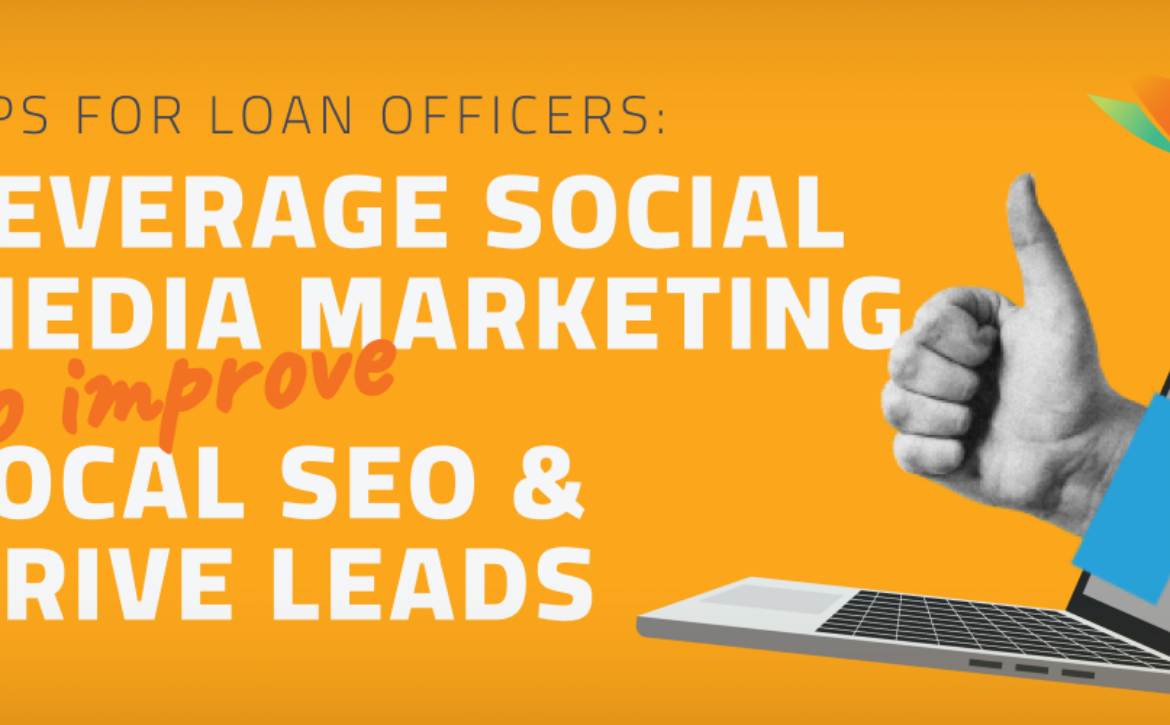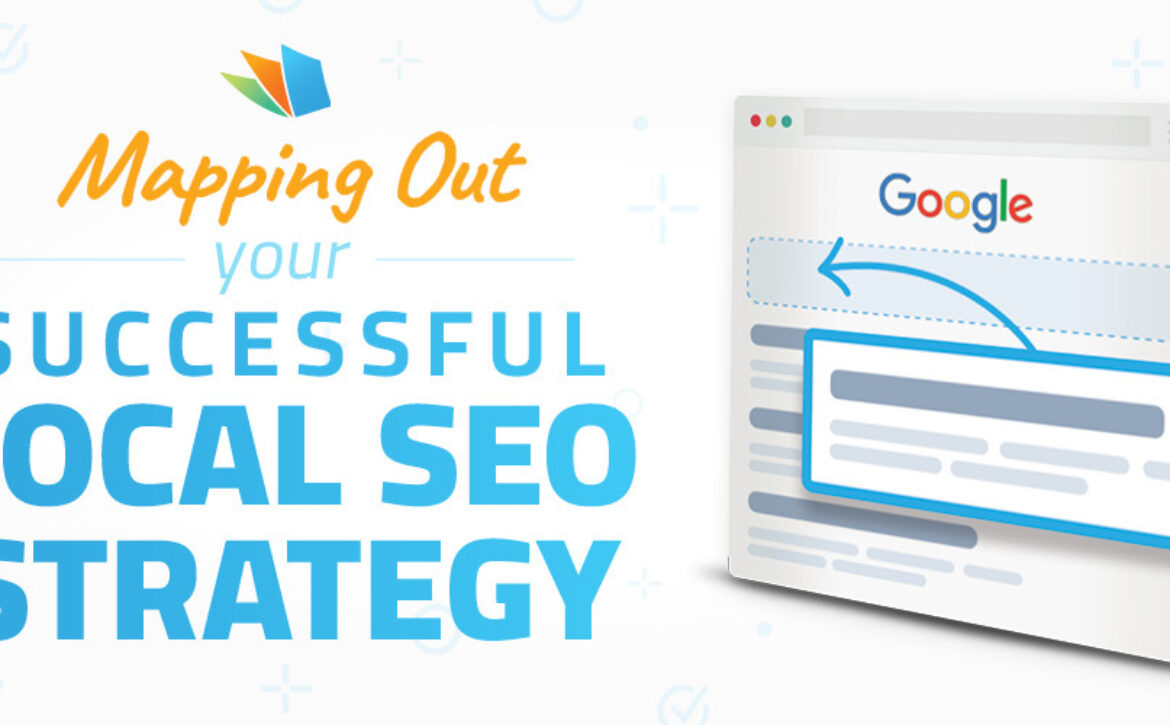Loan Officers: Using Social Media to Improve Local SEO and Drive Leads
While it’s not entirely clear whether social media signals directly impact Google’s ranking algorithm, what’s certain is that social media can indirectly improve your website’s ranking.
Loan officers who tap into the power of social media are more likely to see an improvement in their overall search engine rankings and, as a result, increase mortgage lead generation. In this post, we’ll break down how social media can boost your website’s local search ranking and share some loan officer marketing ideas for boosting SEO that you can start using immediately.
The Connection Between Social Media and SEO
Before getting into strategies, let’s clarify how social media impacts SEO. It’s a common misconception that simply being active on social media directly improves your Google search rankings. In reality, the relationship between social media and SEO is more nuanced.
Google has openly stated that social media signals such as likes, shares, and followers aren’t direct ranking factors. However, that doesn’t mean social media isn’t valuable for SEO.
Done-For-You Social Media for Loan Officers
Here are a few ways social media indirectly impacts SEO for mortgage websites:
- Increased Website Traffic: Sharing your content on social media platforms like Facebook, Instagram, X, and LinkedIn brings more eyes to your site. Increased traffic signals to Google that your site is valuable.
- Content Resharing Leads to Backlinks: When your content gets shared, it increases the chances of earning backlinks from reputable sites, building your site’s authority. Backlinks remain one of the most important ranking factors.
- Brand Visibility and Engagement: The more people engage with your content, the more your brand gets recognized. High engagement can enhance your authority and credibility, factors that Google considers for ranking.
The Role of Social Media in Local SEO
For loan officers, Local SEO is critical. Unlike national SEO strategies, Local SEO focuses on optimizing your online presence to attract clients within your geo-targeted area. When done effectively, local SEO can position your business at the top of search results –even above nationally recognized mega lenders –when potential clients are searching for mortgage services in a geographic area.
Marketing Tip: When people search on mobile devices, the results are automatically tailored to their location. Even desktop searches tend to prioritize local businesses. This means loan officers can outrank big lenders in local search results by focusing on location-based SEO strategies.
Using Social Media to Drive Local SEO and Generate Leads
- Geo-Targeted Posts: Creating location-specific content on social media helps establish your relevance to a particular area. For example, when you publish a Facebook post discussing housing trends in your city or neighborhood, you increase your chances of being found by local users.
- Local Hashtags and Tags: Incorporating local hashtags in your social media posts makes your content more discoverable to people searching for services in your area. For instance, hashtags like #SanAntonioRealEstate or #SanDiegoMortgage will help you show up in local searches.
- Collaboration with Local Agents and Influencers: Partnering with local real estate agents and referral partners can boost your online presence by reaching their audience, thereby increasing the visibility of your content in local searches.
Marketing Tip: Consistently include location-specific keywords in your social media bios and posts. For instance, adding “San Antonio loan originator” to your LinkedIn profile will help with local visibility.
AI-Powered Website Builder – See Demo Now!
Leveraging Social Media for Mortgage Lead Generation
Now that we’ve covered the SEO benefits let’s focus on how social media can be a powerful tool for mortgage lead generation. You can attract potential clients organically by consistently posting relevant, engaging content on platforms like Facebook, LinkedIn, X, and Instagram.
Here are some actionable social media strategies to generate more mortgage leads through social media marketing:
- Post Educational Content: People searching for mortgages often look for reliable information. Posting educational content, like blog posts explaining the differences between FHA and VA loans or tips for first-time homebuyers, positions you as an expert in the field. Drive traffic back to your site by sharing snippets of this content with links in your social posts.
- Share Financial Wellness and Homeownership Tips: Go beyond just talking about mortgages by offering broader financial advice, such as budgeting tips, saving for a down payment, or improving credit scores. Content that supports overall financial wellness can provide extra value to your audience and position you as a helpful resource in their homeownership journey, not just a loan officer. This builds trust and keeps your audience engaged with your brand.
- Share Local Market Insights: As a loan officer, providing updates on local housing market trends is a great way to engage your audience. Share data, infographics, or insights about home values, interest rates, or real estate opportunities in your area. This hyper-local content boosts your credibility and enhances your local SEO efforts, driving more traffic to your website.
- Collaborate with Real Estate Agents and Referral Partners: Use social media to collaborate with them by sharing each other’s content, creating co-branded posts, or other types of content. This strengthens your relationship and exposes your business to their audience.
- Share Client Testimonials and Success Stories: Highlighting positive client experiences is a powerful way to build trust and credibility. Share testimonials and success stories of past clients who found their dream homes with your help. A branded graphic with a direct-quote review, video testimonials, or before-and-after stories can make an even bigger impact. Don’t forget to include a link to your site for prospects to learn more about your services.
- Engage with Your Audience: Interaction is key to driving leads. Engage with your followers by answering questions, responding to comments, and creating polls or surveys. The more you engage, the more trust you build with your audience, making them more likely to reach out when they need mortgage services.
- Share Community-Focused Content: Go beyond self-promotion by highlighting local events, businesses, or causes that matter to your community. Whether it’s supporting a charity, promoting a neighborhood event, or featuring a local business, this type of content shows that you’re invested in the community. It helps build goodwill and keeps your brand top of mind without being overly promotional.
BONUS: Practical Tips for Loan Officers to Improve SEO
With all this in mind, here are some practical tips to help you get started with social media marketing to improve your SEO:
- Link Back to Your Website: Make sure every social media post that shares a blog, article, or resource links directly back to your website. Whether it’s a call to action at the end of a post or a direct link in the content, driving traffic from your social channels to your site helps boost your website’s SEO performance over time.
- Post Consistently: Consistency is key when it comes to social media marketing. Create a content calendar to ensure you’re regularly posting valuable content, such as mortgage tips, client success stories, or local housing market updates.
- Incorporate Eye-Catching Graphics: Visual content like branded images catch more attention than text alone. Well-designed graphics not only drive engagement but are also more likely to be shared, expanding your reach and boosting SEO.
- Optimize Your Profiles: Your social media profiles should be optimized for SEO for mortgage websites, meaning they include keywords that support your website’s SEO. Include relevant keywords like “loan originator,” “mortgage broker,” and your local area in your bio and profile descriptions. This will make it easier for search engines to index your profiles, increasing your visibility.
- Repurpose Your Best Content: Don’t let your best-performing content go to waste. Repurpose them into shorter snippets or videos to reshare on social media and continually drive traffic back to your site.
How LHP-3 AI-Powered Website Builder Simplifies Social Media Management
Managing your social media presence doesn’t have to be time-consuming or complicated. With LenderHomePage’s LHP-3 AI-powered website builder, you can easily maintain a professional, engaging presence across all your social platforms—without the hassle.
Here’s how the LHP-3 social media feature can help you elevate your marketing efforts:
- Ready-to-Go, Branded Content: LHP-3 delivers professional, branded content that’s ready to post. It’s designed to engage your audience and keep your name top of mind. Whether it’s market insights, mortgage tips, or client success stories, the platform provides high-quality, relevant content that aligns with your business.
- Create Custom, Branded Content in Minutes: Even if you’re not a content expert, LHP-3 makes it easy to create custom posts that speak directly to your audience’s needs. The platform’s streamlined content creation tools allow you to personalize posts for your market in just a few clicks. Whether you want to share local housing trends or promote your mortgage services, LHP-3 ensures your content hits the mark.
- Publish Across All Platforms with a Few Clicks: LHP-3 allows you to publish your content across multiple social media platforms with minimal effort. This ensures your brand stays visible and consistent without spending hours creating and posting.
By using the LHP-3 AI-powered platform, you can keep your social media efforts on track, maintain a steady stream of content, and ensure your online presence is both professional and engaging. It’s the perfect solution for loan officers looking to grow their brand while saving time.
Mastering Social Media Marketing to Boost Local SEO
While social media may not directly influence Google’s ranking algorithm, it plays a crucial role in driving traffic, building backlinks, and improving brand visibility—all of which can indirectly boost your website’s SEO. By leveraging social media for Local SEO and mortgage lead generation, loan officers and mortgage brokers can stay ahead of the competition and attract more clients.
Want an easier way to manage your social media and improve your online presence? Discover how LHP-3’s AI-powered social media tools can help you automate posts, engage with your audience, and drive more leads. Click below to see it in action!



